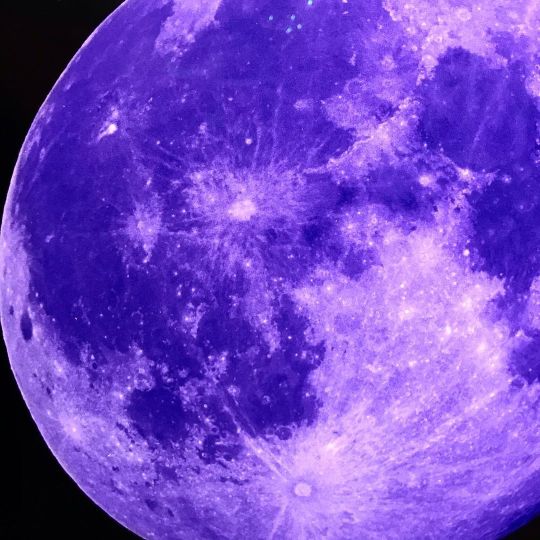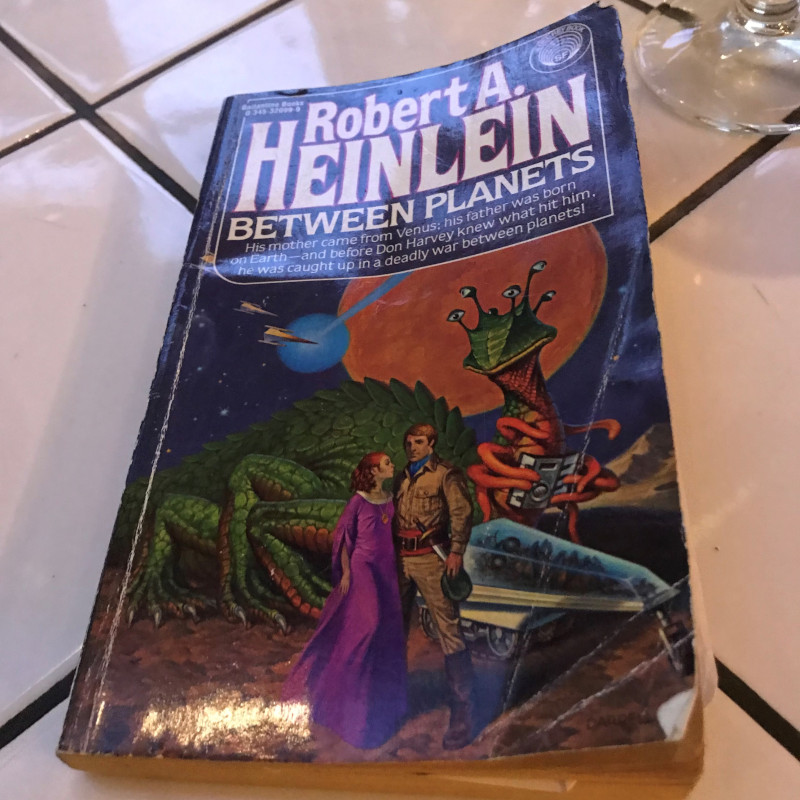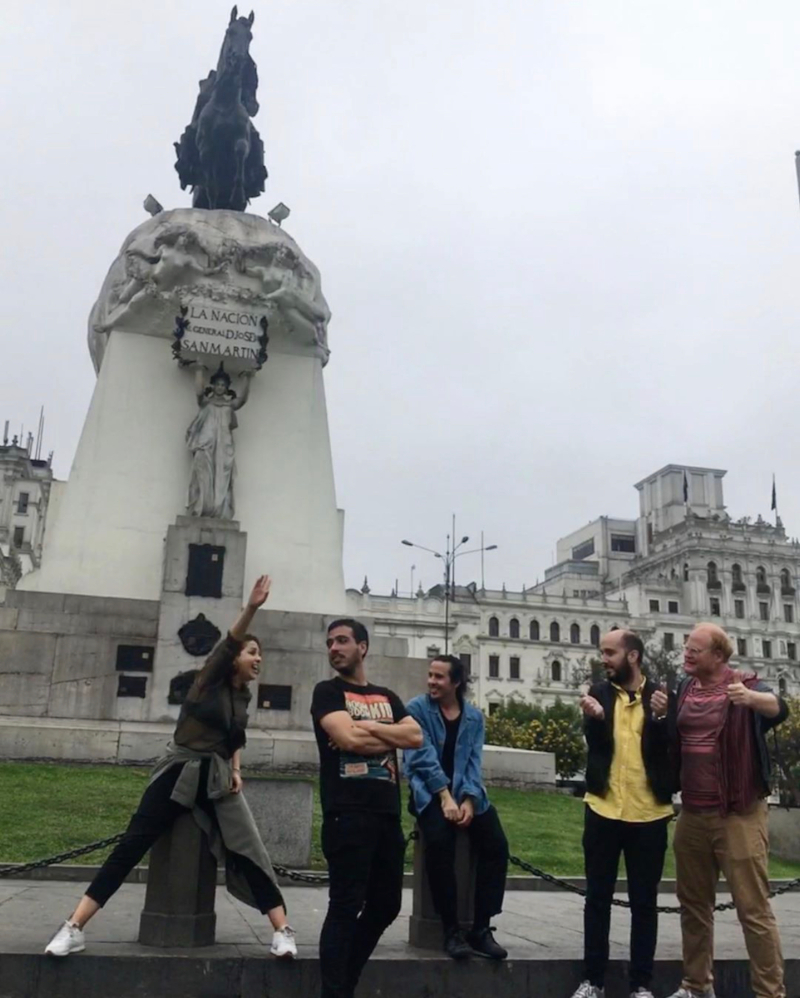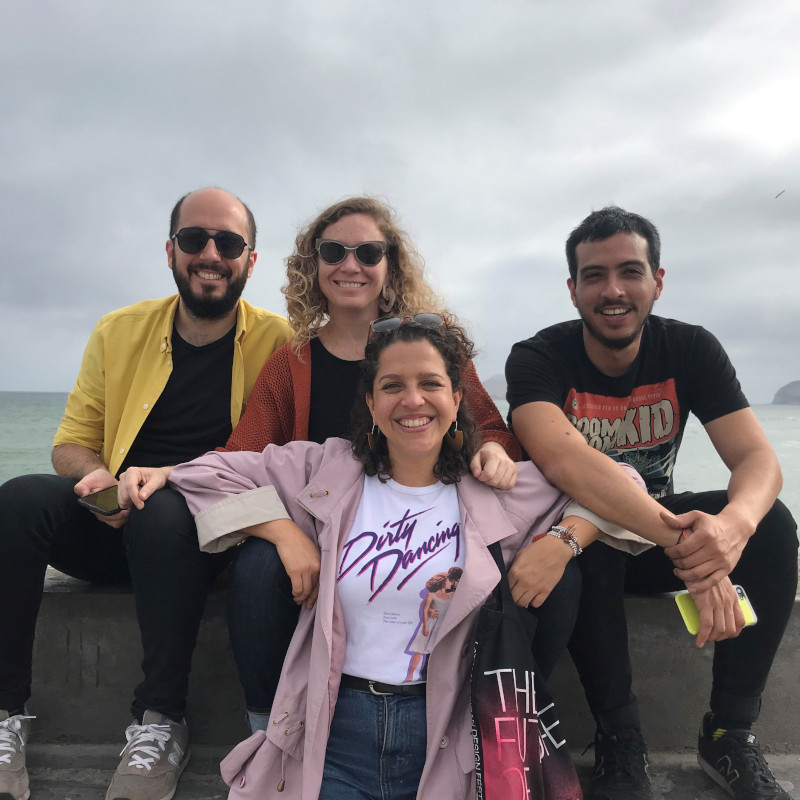 While traveling around,
undocumented, in Lima, Peru, I picked up, pretty much at random, a
worn paperback copy of Robert A. Heinlein's 1951
science fiction novel "Between Planets,"
in a book seller stall of a Sunday flea market.
While traveling around,
undocumented, in Lima, Peru, I picked up, pretty much at random, a
worn paperback copy of Robert A. Heinlein's 1951
science fiction novel "Between Planets,"
in a book seller stall of a Sunday flea market.
Published in 1951, this slim volume, aimed at "young adults," grappled with questions about where you call home, and why.
I was looking for a slim paperback to read--something to fit in my back pocket--because I had to pick up a replacement passport that had went missing.
Usually I'm pretty good at this stuff, but somehow I lost my passport within in an hour of walking around Lima. Somehow I assumed that traveling abroad I should take my password everywhere (this is not true, I've since learned).
And since I've discovered my loss at about 4 pm on a holiday weekend so I was pretty much helpless to do anything about it for the entire weekend. So I kept exploring, but what a weird feeling it was, to exist without documentation in a land other than your own. (And I'm sure my friends, whose place I was staying at, were somewhat nervous about sudden suddenly ambiguous legal status too , tho they never let on.)
 The U.S. Embassy did not allow electronics of any sort, and knowing I'd be
in that bureacratic waiting room for a minute, I wanted something to occupy my mind.
Also, I'm trying to get out of the habit of checking Twitter or Instagram on my
my phone every time I get a few free minutes.
Having a magazine or a small book to dip into seems like the better way to go.
The U.S. Embassy did not allow electronics of any sort, and knowing I'd be
in that bureacratic waiting room for a minute, I wanted something to occupy my mind.
Also, I'm trying to get out of the habit of checking Twitter or Instagram on my
my phone every time I get a few free minutes.
Having a magazine or a small book to dip into seems like the better way to go.
Heinlein's tale tracks a young man who has found himself caught between different planets as well. Don was staying at a camp on earth when he gets an urgent missive from his parents to return to their home, on Mars, immediately. They sense that a war is about to break out between the planets and the Federation, a entity that wants to unite the planets under a single governing body.
Born in space, Don has no home planet. His mother was from Venus, so he had birthrights there, though he did not feel any loyalty to that world, even as it is being attacked. He has plenty of parents on Earth, but his family lives on Mars. As escalations between the planets intensify, he tries, but does not make it to Mars and so finds himself shuttled back to Venus, a planet that refuses to join the new galactic order. Don joins the freedom fighters for that planet.
The novel felt timely, if not timeless, and not just because I was wandering around a foreign country with no papers, helped along only by some friends who lived in the area. On Saturday night we went dancing until the morning, and when we spilled out into streets as the sun was coming up, we danced there as well.
After, they took me to the the statue of José de San Martín , who liberated the country in the 19th Century from the Spaniards. He is still a hero here. Dismiss him at your own at your own peril, Luis warned me, turning serious for the moment.

If I were without a country for more than just a weekend, I'd like to think I would be on the side of the freedom fighters, ignoring the borders others put around us. I know my friends would be. It's a more difficult path, but one that makes for the better life, as Heinlein seems to argue. Autonomy requires freedom. And there's always more fun on the side of freedom.
